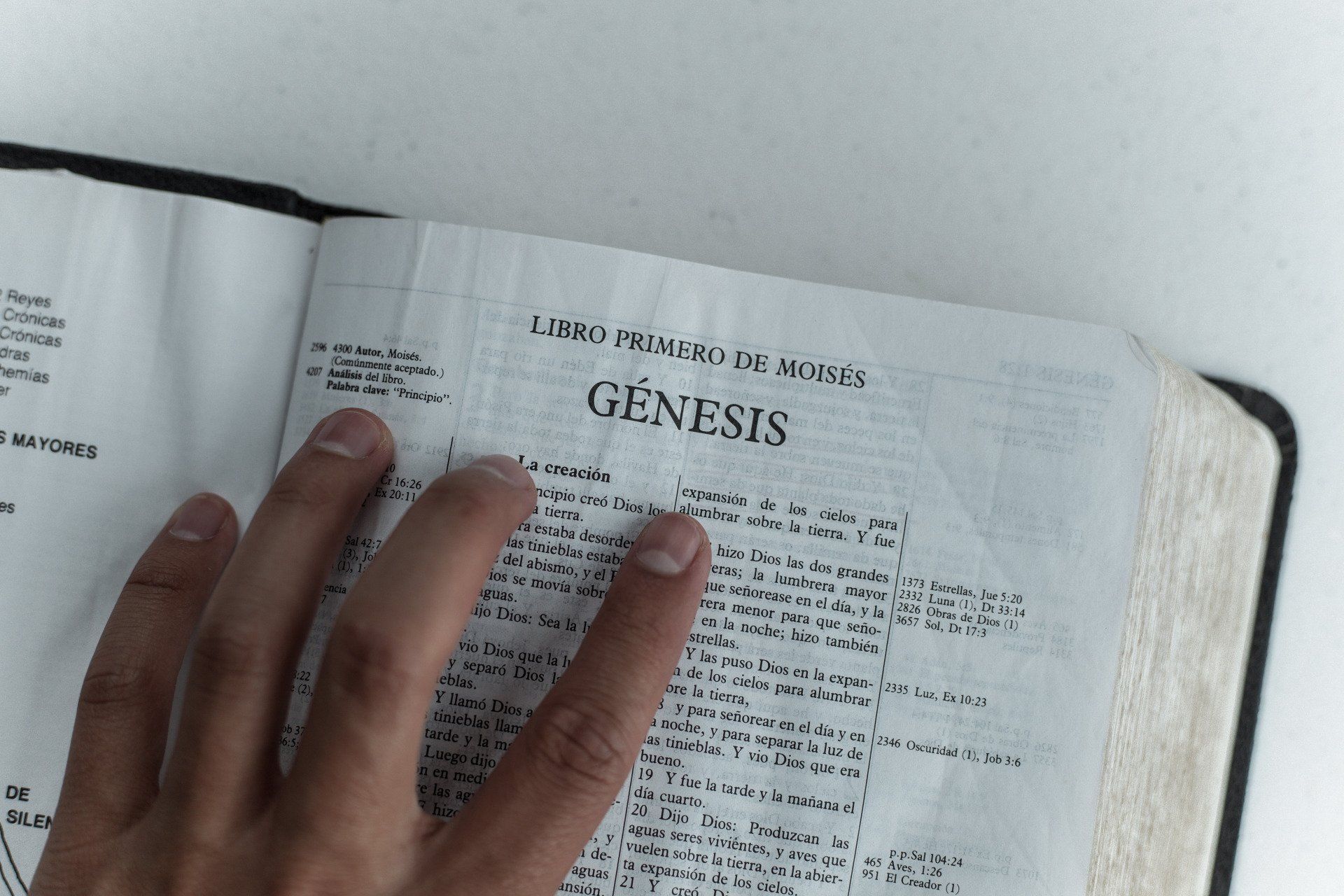Get in touch
555-555-5555
mymail@mailservice.com
Genesis 23
Genesis 23 The Death of Sarah
Sarah, loving wife of Abraham, died at the age of 127 in Hebron.
She was born in 1803 B.C. in Ur of the Chaldees (present day Iraq).
She was the daughter of Haran and the granddaughter of Terah.
She married Abraham, a half-brother who became very wealthy in the cattle business and traveled widely, spending some time in Egypt.
She gave birth at the age of 90 to now 39-year-old Isaac.
Burial will be in the cave of Machpelah.
Chapter 23 opens with the news that Sarah had died. It appears that when she died in Hebron, Abraham was in Beersheba, about 26 miles away. Why were the two of them apart? Was she shopping? Visiting friends? Or did she hear that Abraham almost killed her son and decided that she needed to get away from her crazy husband?
Anyway, Abraham had not done any pre-planning for a burial, perhaps because his life was so nomadic, so he heads off to find a nice place for Sarah to be laid to rest. Her resting place will become a family tomb that will be the final resting place also for Abraham, Isaac, Rebekah, Leah, and Jacob.
As was the custom of the day, when Abraham told a Hittite that he wanted to buy land to bury Sarah, the bargaining began. It was the custom that the seller would offer a very generous deal to the buyer, which was to be turned down, it was meant to set a friendly tone for the negotiations. The Hittite offered Abraham any plot of burial land that he wanted, for FREE. Abraham, as was expected, refused this generous offer. He then asked to be able to purchase the cave at Machpelah, which in Hebrew means, double cave. This was to become a family plot.
A grave plot at Shiloh Cemetery in Ireland, Indiana costs $500. A plot at the pet cemetery across the street is only $150. One woman, after hearing the price difference, asked if she could bury her husband in the pet cemetery. No, you cannot. Today, in Jerusalem, a single plot in the largest cemetery costs $30,000. Burial space is so limited that they have built underground burial tunnels. Some have seven floors and look like underground malls. An option being considered by authorities is the ancient bone-gathering method where the dead are buried temporarily for a year, then the bones would be gathered and placed in an ossuary or bone box. These ossuaries are small limestone boxes approximately 20 inches long, 10 inches wide and 12 inches high. Usually they have a flat, gabled, or rounded lid. This secondary burial would allow the original graves to be recycled.
Let us get back to the negotiations. The Hittite then asked a ridiculously high price for the cave. It was then expected that Abraham would negotiate downward, but he did not. He accepted the first price. Along with the cave came a field of land with some trees, and perhaps a well. Why did he buy the whole package? Abraham was a herdsman, not one who would settle down. This was not a retirement community he was buying into. The seller wanted to sell the package because he did not want the feudal responsibilities that went with land ownership. Buying this land, which was the only land he ever owned in the Promised Land, was a way of renouncing other communities as his home. He is saying, in effect, “This is now my home.” The seller is saying, “It’s a package deal. I do not want to have any feudal responsibility to the king. Take it or leave it.”
Say, wouldn’t this be a good time to have a homework assignment of getting your funeral paperwork and plans to make it easier for your loved ones? Do you have a will? Living will? Medical Power of Attorney? Funeral plans? Letter of Instructions? Does someone know what you own and where the important documents are kept? Have you written a draft of your obituary? The more you do now, the easier it will be for your family at a very difficult time. It is one last act of loving kindness that you can do for them.
Recent Articles
Show More
Share this:
Share
Tweet
Share
Mail
Start Here...
Why Study the Bible?
Don’t many consider the Bible to be just a book of myths? Why do we read the Bible rather than the sacred literature of other religions?
How do we know that it is from God? How do we know that what we have today is an accurate translation from the original? Is the Bible complete or have there been some books that have been lost?
We should be able to answer these questions, and there are answers! So start here!
Answers to Common Bible Questions

December 17, 2021
Lent is a six week period of spiritual devotion starting on Ash Wednesday and ending at Easter. Those who observe Lent usually give up something for Lent. Some might give up coffee, or soda pop, or alcohol, or chocolate. May I suggest that you give up something that will really impress God and make this season of Lent one of the most memorable and meaningful seasons of your life? May I suggest that if you are giving up something, why not give up some of the acts of our sinful nature mentioned in Gal. 5:19? Why don’t we give up lying about others? Do you think you can give up the hate you feel towards others? How about envy, can we work on putting envy aside this year? How about giving up on the naïve idea that all pastors are mature Christian leaders whose word should always be accepted, rather than wolfs in sheep’s clothing (Matt 7:15). How about giving up the idea that everyone in church is a real Christian (Matt 7:21-23). How about giving up your desire to seek revenge on those who have hurt you (Matt 18:21-22)? If you are insecure and feel threatened when you see the success of others in ministry, how about giving up efforts to hinder others who have been called to minister (Rom 12:4-8)? Of course it is easier to give up something like chocolate, etc. and make yourself feel like you are doing something that is pleasing to God. If you are not willing to give up unchristian behavior, might I suggest something that will really please God this Lent? Give up all evidence of your profession of Christian faith, such as books, pictures and jewelry. Don’t talk about God, Jesus or the Church. I think God would appreciate it if you would stop giving HIM a bad name by the way you live. Let’s give up what hinders our witness and become a better ambassador for Christ (2 Cor 5:20) this Lenten season.

December 17, 2021
In Matthew 2:1-2 is says that the magi saw "His star in the east." What was this star that guided these men to Jesus? Some have suggested that it could have been a comet, an asteroid, or perhaps a meteor or an especially bright star. The problem with these suggestions is that these physical things either quickly move across the sky and then disappear or are too far away to provide directions with any precision. It would be hard to get directions from such objects. The "star" had to move constantly or intermittently at the same pace as the magi. Then it says that it hovered over the house where Mary and Joseph had moved to with Jesus. It hardly sounds like a comet or meteor or a star as we know them. Can you think of another time that people in the Bible were guided by some form of light? How about the time when Moses was leading the Israelites out of Egypt? He didn't have a global positioning system with him. He did have a pillar of fire that led him at night (Ex 13:21-22). We see this light in Solomon's Temple (2 Chron 7:1-3) and when the Jews were about to go into Babylonian captivity, we see it leaving the Temple (Ezek 9-11). In the New Testament we see it at the birth of Jesus (Luke 2:9) at His transfiguration (Matt 17:5) and His ascension (Acts 1:9). What exactly was this guiding light? The word "star" can also be translated as "radiance." It appears that it was this "radiance" that guided Moses and the magi. The Jews call this the "Shekinah", a physical manifestation of the glory of God in the form of a supernatural radiance. This, I believe, is what the Star of Bethlehem was.

December 17, 2021
Imagine that you are the pastor of a church. A young married couple is having some difficulties in their relationship and they seek counsel from you. On Monday the wife comes in to give her assessment of their marriage. What do you think she will say? She might say that she is a hardworking, caring and supportive wife and that it is her husband who is the neglectful, insensitive brute and the source of all problems in the marriage. You feel so sorry for this wife and when you see her husband in the hallway, you think to yourself, "What a jerk." On Friday the husband comes in and gives his assessment of the marriage. He tells you that he is hard working and very generous and that she is the major problem in the relationship. As the pastor, you are wondering if they both are talking about the same marriage. Each person tells you what makes them look best and their spouse the worst. Where is the truth? The truth is probably somewhere in between Proverbs 18:17 says, "The first to present his case seems right, til another comes forward and questions him." There are conflicts in all relationships, between spouses, parents and children, employees and employers. When you hear one side of a story, don’t assume that what you hear is the complete truth. And don’t pass on to someone else what you have heard. Probably, at least some of what you heard is untrue to gain your support in a conflict.
Questions?
Send us your questions or comments. We respond to every message.
About us
Encouraging Everyone to Study the Word of God and do the Work of God.
Useful Links
Contact info
Join our family
Contact Us
Thank you for contacting us.
We will get back to you as soon as possible
We will get back to you as soon as possible
Oops, there was an error sending your message.
Please try again later
Please try again later
The Berean Bible Ministry
This web site is dedicated to the study of the Bible, with no advertising and no popups. It is supported by our Bible study group.





